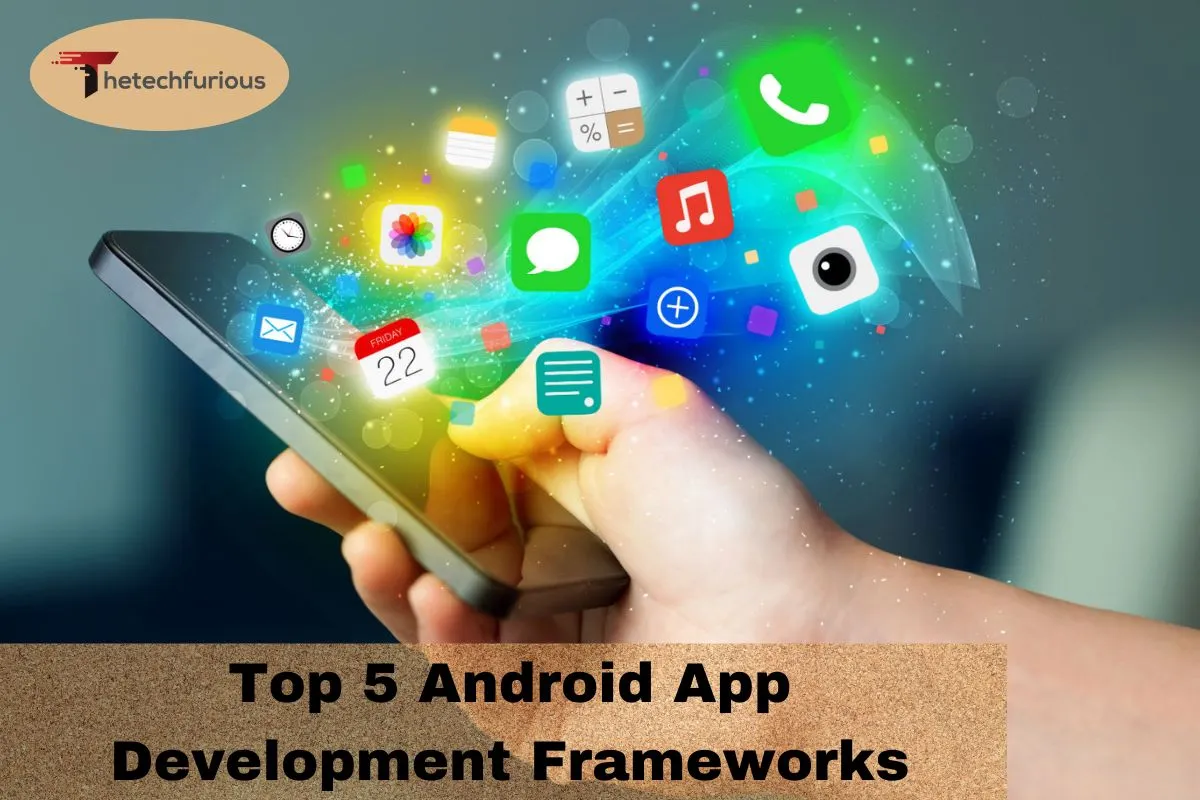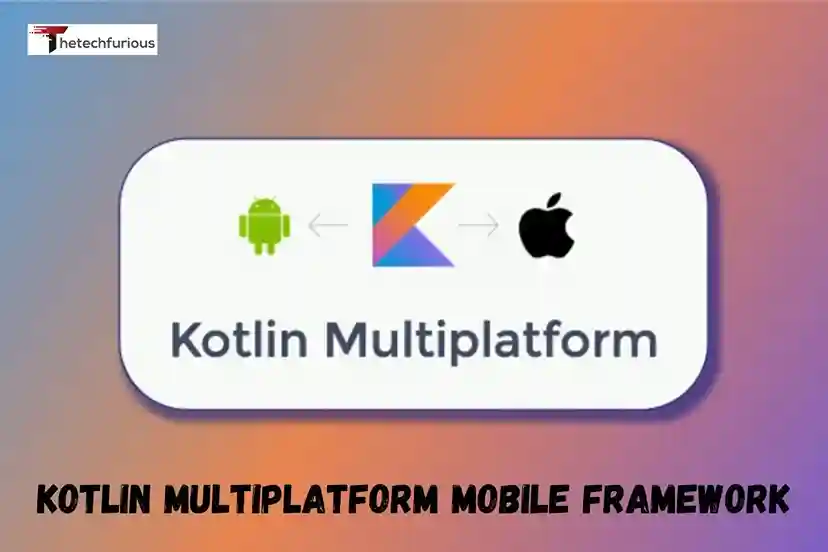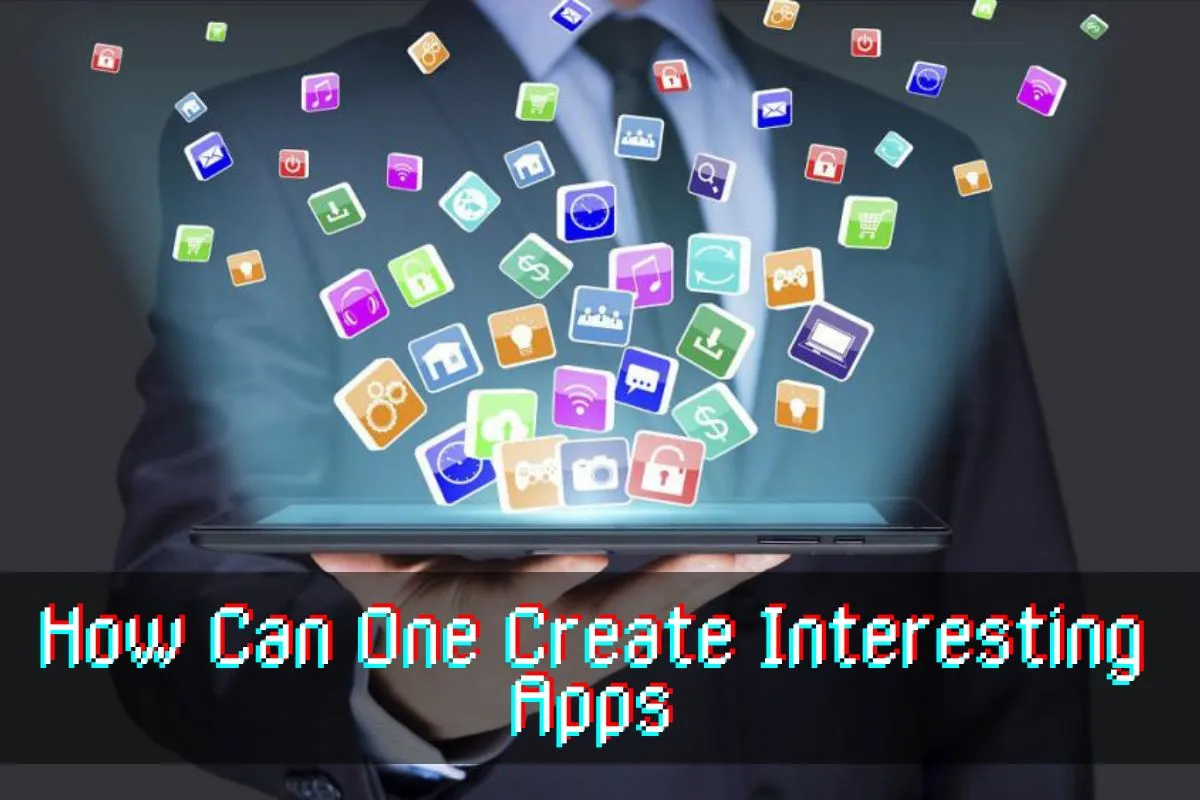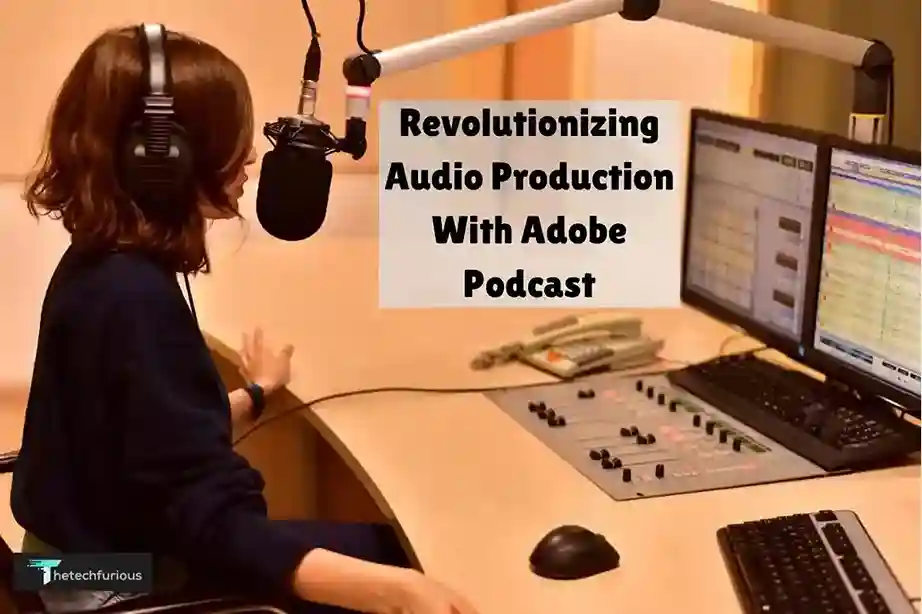Top 5 Android App Development Frameworks
A powerful and flexible development framework is considered the backbone of Android app development. Android development frameworks empower developers

A powerful and flexible development framework is considered the backbone of Android app development. Android development frameworks empower developers to create unique and feature-rich applications.
Android app frameworks are like toolboxes that provide all necessary frameworks which enable editors to make efficient apps with ease.
From built in user interface elements to hardware and software integration, These frameworks are a proof of hard work of the developers.
As we move forward, we’ll uncover the secrets of Android app development frameworks and their endless potential to build applications that have validity and inspire users around the world.
What are Development Frameworks?
Before we delve into the competition of ranking the Android app development frameworks, Let’s know what are App development Frameworks?
Android app development frameworks are software libraries or platforms that provide a structure for the building of applications. They offer templates, reusable codes, predefined components, and tools that streamline the process of development of applications.
Best 5 Android App Development Frameworks
1. Flutter
The first android framework that we are going to discuss is Flutter. Flutter is developed by google and launched in 2017. Flutter allows developers to create applications for desktop, mobile and web from a single data base.
Features of Flutter
1. Single Codebase for Multiple Platforms
One of the most compelling features of Flutter is its ability to use a single codebase to create apps for Android, iOS, web, and desktop platforms. This not only reduces development time and costs but also ensures a consistent user experience across all platforms.
2. Hot Reload
Flutter have hot reload feature that makes it easy for developers to see the changes they make in the code immediately. Due to hot reload feature, we do not need to restart the app to see the changes that we are making in the app. This android app development framework makes it easy for developers to experiment new features. Real time changes also enhance the end users experience

3. Rich Set of Unique Widgets
Flutter has a rich collection of custom layouts and customizable widgets that are unique and obey the design guidelines of the platform. These widgets help to make responsive UIs with less effort and make it easy to create visually appealing UIs.
4. Dart Programming Language
Every Android app development requires the use of a programming language. The programming language used by flutter is Dart which is object-oriented and client-optimised programming language. Dart helps us to deliver high performance for mobile apps
2. React Native
The second android framework in our list is React Native. React native belongs to Facebook and it is a JavaScript framework which can help us in writing real and natively rendering mobile applications for both iOS and Android.

React Native allows us to create a single codebase that works across both Android and iOS platforms. The single codebase feature significantly streamlines the development process.
Features of React Native
1. Cross-Platform Compatibility
React Native has the ability to use a single codebase for both Android and iOS applications which is one of the most significant advantages of this Android framework. The cross-platform compatibility helps us to reduce the time of development and costs. This feature also ensures that the user gets a consistent experience across platforms.
2. Native Performance
React Native Framework performance is native which means that the apps developed using this framework work very smoothly and efficiently without getting slow. Native performance ensures us that our app will have the same performance as a native app.
3. Hot Reloading
The hot Reloading feature in this Android framework allows developers to see the results of the latest changes immediately.
When a change has been made to the code, the app restarts on its own without the need to manually restart it. This promotes productivity as the changes made in the app during the developmental process can be tested without any delay.
4. Modular Architecture
React Native have a modular architecture which means that this framework allows the developers to separate the program functions into small blocks or modules that are interchangeable.
The modular architecture makes makes it easy to upgrade and update ceratin features of applications. This feature divides the work of developers and each developer can work on a specific block of the app which results in a better outcome.
3. XAMARIN
Now in thetechfurious blog you will explore one of the powerful android frameworks, Xamarin. Xamarin is owned by Microsoft and is one of very versatile and powerful android app frameworks. This allows developers to create Android, iOS, and Windows apps in a native model and it also uses a single codebase written in C#. Xamarin have gained significant attention among the mobile app developers because of its several robust features.
Features of Xamarin

1.Single Codebase
Xamarin can share a significant portion of code across multiple platforms. This sharing of code not only speeds up the process of development of the apps but also ensures consistency.
With the help of this feature, many bugs are fixed. Xamarin also help businesses to bring their apps to market faster than others who use traditional native development.
2. Native like Performance
Xamarin allows direct access to native APIs and hence it shows native-like performance. This Android app framework ensures that apps which are built with the Xamarin framework are very fast and responsive just like other native apps. Developers who use Xamarin ensure that apps delivers very good experience to it users.
3.Complete integration of .NET
Xamarin uses the .NET ecosystem completely and it offers a vast library of classes and tools. Xamarin have the access to powerful features such as Language Integrated Query (LINQ) and Asynchronous Programming.
4.Comprehensive Development Environment
Developers have access to a rich set of tools with Visual Studio. These tools are used for debugging, profiling, and testing. The Xamarin have Test Cloud feature also an this android framework further enhances testing capabilities by allowing automated testing on a widely available range of real devices.
5. Xamarin.Forms
Xamarin is a unique Framework for developers and it allows them to maximize sharing of codes, Xamarin. Forms provide a UI toolkit that allows for creating user interfaces that can be shared across Android, iOS, and Windows.
4. Ionic

Ionic is a very versatile and powerful framework used for android development. This android development framework offers a lot of features and benefits which streamline the process of development of an application. Ionic uses web technologies like HTML,CSS and Java script.
By choosing ionic as an android development framework in OS , the developers can develop robust and highly efficient mobile applications from a single codebase. Ionic have the tools and capabilities that will fufill your needs in making a reliable application that stands out the competition in the market.
Features of ionic
1.Pre designed UI components
Ionic has a rich library of pre designed UI components which make it easy for android developers to make highly appealing, visually attractive user interfaces.
The pre-designed Ui components of ionic follows the native design guidelines.Ionic’s extensive library of UI components and plugins accelerates the development process.
2.Plugins like Capacitor and Cordova
Ionic’s Capacitor is a modern replacement for Cordova which provides the web app developers with a more streamlined approach in achieving the native functionalities.
Ionic’s capacitor also ensures better performance and compatibility with native SDKs.The latest versions of Ionic offer improved performance and better integration with native APIs which provide a near-native user experience.
3.Web standards based
Ionic is Built on reliable web standards such as CSS, HTML, and Java script. These web standards ensures compatibility and performance across different platforms. These familiar technologies ultimately makes the learning curve less steep.
4. Cross Platform Development
Ionic supports android, IOS and Progressive Web Apps (PWAs). It significantly reduces the development time nad efforts because the developers can write once and run it anywhere.
This android framework ensures that developers can create high performing web applications that offer native-like experiences, extending the reach of their applications beyond just mobile platforms.
Ionic supports Angular, React, and Vue which allow developers to leverage their existing skillfulness and libraries to create a more efficient development environment.
5. Kotlin Multiplatform Mobile (KMM)

KMM is a relatively one of the new android app development frameworks from Jetbrains and it is a game changer for mobile app development because of its cutting end technology.
Features of KMM
1. Code Sharing
KMM has the ability to share code between Android and iOS. Developers can write business logic, networking, and data storage code once and they can use that code on multiple platforms like android and ios without the need of writing the codes again and again.
This features saves the time of developers and they also reduce duplication which ultimately results in faster development of apps.
2. Native Performance
KMM compiles shared code to native binaries which ensuring optimal performance.It compiles to JVM bytecode on android while on iOS, it compiles to native binaries through LLVM. With the help of this approach, the shared code runs efficiently on both platforms without affecting the performance. Developers can start by sharing small parts of the codebase and gradually expanding this sharing as per need.
3. Improved Collaboration
KMM encourages better collaboration between the Android and iOS teams. Both teams can work together on core features and platform-specific features simultaneously due to the shared business logic. This leads to more efficient workflows and reduces the likelihood of cross-platform differences.
Conclusion
Choosing the right framework for android app development can make a big difference in the success of your project. We have discussed “top 5 android app development frameworks” in this blog. After thorough analysis, we have summarized the key features of Flutter, React Native, Xamarin, Ionic, and Kotlin Multiplatform Mobile. Each android framework offers unique strengths and fulfill different needs of the developers.
- Flutter’s development cycle is characterized by rapidity and its ability to accommodate cross-platform functionality.
- React Native is popular for its performance and flexibility.
- Xamarin is a strong choice for those people who are invested in the Microsoft ecosystem.
- For web developers who are transitioning to mobile development, Ionic is a popular choice
- KMM offers streamlined code sharing and improved performance.
It is important for developers and businesses to understand the specific requirements and strengths of each framework. By using the right tools, you can simplify the development process, reduce costs and deliver high-quality applications.
Frequently Asked Questions
Q1. What is the best framework for developing Android apps?
There is no clear answer. The best framework depends on the specific requirements of your project and target platforms. Flutter, React Native, Xamarin, Ionic and KMM are all great options depending on your needs.
Q2. What is the difference between React Native and Flutter?
They use different programming language. React Native uses JavaScript while Flutter uses Dart. React Native provides near-native experience. Flutter provides a fast development cycle and rich UI components.
Q3. Can we use Kotlin Multiplatform Mobile for both Android and iOS development?
Yes, KMM enables us to share business logic and code between different operating systems, ensuring smoother development across all platforms.
Q4. How do I decide which Android app development framework to use?
Consider your team’s expertise, project requirements, target platforms, performance needs, and existing technology stack. Each framework has its strengths and suits different scenarios.
Q5. How android frameworks handle updates?
Andoid frameworks are actively maintained with regular updates. Xamarin has the support of Microsoft, Flutter and React Native have strong community, Ionic has great plugins, and JetBrains is constantly improving its KMM software.









